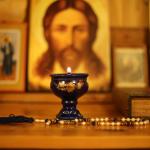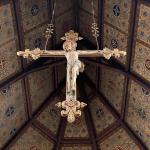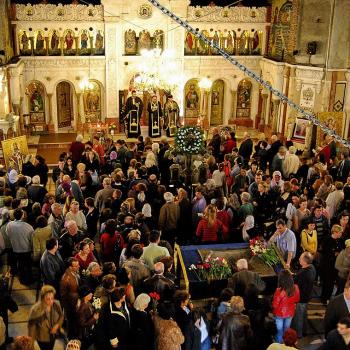
Just as God is known through the uncreated energies (that is, the divine activity), revealing to us what we can know about the divine nature (for we can use them to describe God) , so we are known through our actions. Indeed, it can be said that we are what we do. This is because we establish who we are, our character, by what we do. Others will know us and who we are through our actions. Likewise, when we try to know ourselves, when we try to understand who we are, or rather, what we have made ourselves to be, we will do so through an examination of what we have done throughout our life.
We should desire to examine ourselves, and in this way, come to know ourselves, that is, come to know the person we have become. We must be honest with ourselves and hold nothing back from our examination, for then we will be to see who we have become and consider what it is we need to do so we can become someone better. It is also important for us to know ourselves, to know what we have become, so that we will know more about the hermeneutic filter we have established between us and the world around us; we interpret everything through what we have become, for we consider all things in relation to ourselves. If we have established ourselves in the purity of love we will see and experience all things in and with that purity. If, by what we do, we establish ourselves as being a very selfish, very egoistical person, we will experience all things in relation to the egotistical self which we created for our persona (and, of course, the pride which is associated with that egoistical self). .
The more we establish ourselves in virtue, the more we will experience the world in a way void of the egoistical self, while the more we establish ourselves in and through the enactment of selfish desires, inordinate passions, the more we will create a hermeneutic which interprets the world as good or bad in relation to the way things affirm or hinder our selfish desires. Selfishness, and the pursuit of all the desires we might have through the creation of a selfish, prideful self, leads to delusion and ignorance of the world as it is; this is why such a self must die. We must do what we can to counter our habitual selfishness, so that the delusion created through it will be eliminated. When we do so, when we break through our selfishness, we will be able to see things, not as the self desires them to be, but for what they are. Thus, St Maximos the Confessor tells us:
He who has succeeded in attaining the virtues and is enriched with spiritual knowledge sees things clearly in their true nature. Consequently, he both acts and speaks with regard to all things in a manner which is fitting, and he is never deluded. For according to whether we use things rightly or wrongly we become either good or bad. [1]
The one who has truly embraced the virtues will do all things out of pure love, and because they act out of such purity, they will not be imprisoned to the dictates of the ego. They will see things according to their nature, and they will act in accordance with wisdom and understanding, doing what is fit in the context in which they find themselves in. As they will be what they do, and as they have become purified from all vice, they can even be said to be good (because they will have eliminated all the barriers between the good and themselves, they will participate in the good, doing all things in relation to their connection with the good). If we want to determine how far off we are from such virtue, St Isaac the Syrian tells us to examine ourselves and see if we love the world and all that is in it in the way God loves it:
This will for you a clear sign of your soul’s limpid purity: when, after thoroughly examining yourself, you find that you are full of mercy for all mankind, and that your heart is afflicted by the intensity of your pity for men and burns as with fire, without making distinctions between persons. By this, when it is continuously present, the image of the heavenly Father will be seen in you. [2]
Thus, our spiritual practice should help us detach ourselves from all forms of selfishness so that we can truly love all things with a perfect, self-giving love. We should become persons who imitate and reflect the way God loves the world by loving the world and all in it with such a self-giving love. When we continue to distinguish others so that we do not love all as we should, our egotistical self reveals itself, showing us that we still have a long ways ahead before we find spiritual perfection. Nonetheless, the more we do what is good, the more we grow in love, the more we will know God. “In proportion to a man’s goodness, he is enlightened concerning God; and in proportion as he is drawn up in the knowledge of Him, he approaches freedom of soul.”[3] That is, the more we die to the self, the more we do good and know God through that good, the more God’s love and grace will be made known to us. Then, through such love and grace, we will be able to further detach ourselves from our selfishness, grow in grace, and as we grow in grace, we will grow in perfection.
Thus, as we purify ourselves, we will find ourselves growing in grace, and the more we grow in grace, the more our intellect will be transformed. We will find the seeds of pain and sorrow are tied with inordinate, selfish desires and the hermeneutic those seeds create in our mind. The more we are freed from vice, the more we will see and experience the world in its proper glory, in the beauty and goodness God has given to it. When we are truly good, when all we do is good, all things will be seen as being in and full of grace. The more, however, we embrace vice, the more we turn away from the path of love, the more we will view things in our indolence, and so find ourselves continuing to have thoughts which could lead us astray:
When in a pure state, the intellect, on receiving the conceptual image of things, is moved to contemplate these things spiritually. But when it is sullied through indolence, while its conceptual images may in general be free from passion, those concerned with people produce in it thoughts that are shameful or wicked.[4]
We are what we do. Our mind, and its way of interpreting the world, is shaped by what we have made of ourselves. Our actions seed the mind in such a way that if we engage the world through selfishness, we will create the lens which establishes our own suffering. If, on the other hand, we put all such evil thoughts and deeds to the fire of love, they will burn up, and in the end, we will become pure love, imitating the living flame of love, allowing nothing but the purity of love, the purity of grace, influence us and our experience of the world. This, of course, leads us to heaven, the state in which we experience and see all things in the purity of love.
[1] St. Maximos the Confessor, “Four Centuries On Love: First Century” in The Philokalia: The Complete Text. Volume Two. Trans. G.E.H. Palmer, Philipp Sherrard and Kallistos Ware (London: Faber and Faber, 1990), 63 [#92].
[2] Saint Isaac the Syrian, The Ascetical Homilies of Saint Isaac the Syrian. Trans. Monks of the Holy Transfiguration Monastery. Rev. 2nd ed (Boston, MA: Holy Transfiguration Monastery, 2011), 552 [Appendix A Homily I].
[3] Saint Isaac the Syrian, The Ascetical Homilies of Saint Isaac the Syrian, 364 [Homily 48].
[4] St. Maximos the Confessor, “Four Centuries On Love: First Century,” 63 [#87].
Stay in touch! Like A Little Bit of Nothing on Facebook.
If you liked what you read, please consider sharing it with your friends and family!













